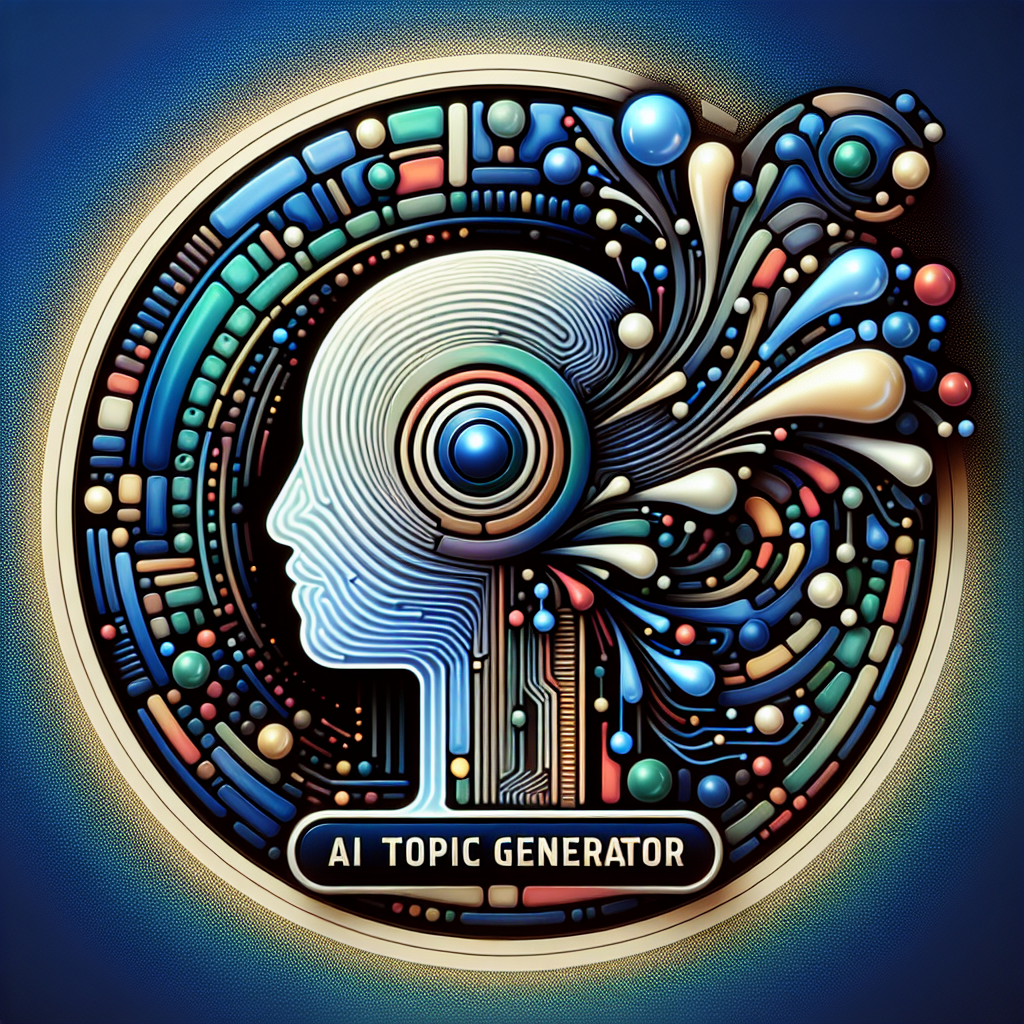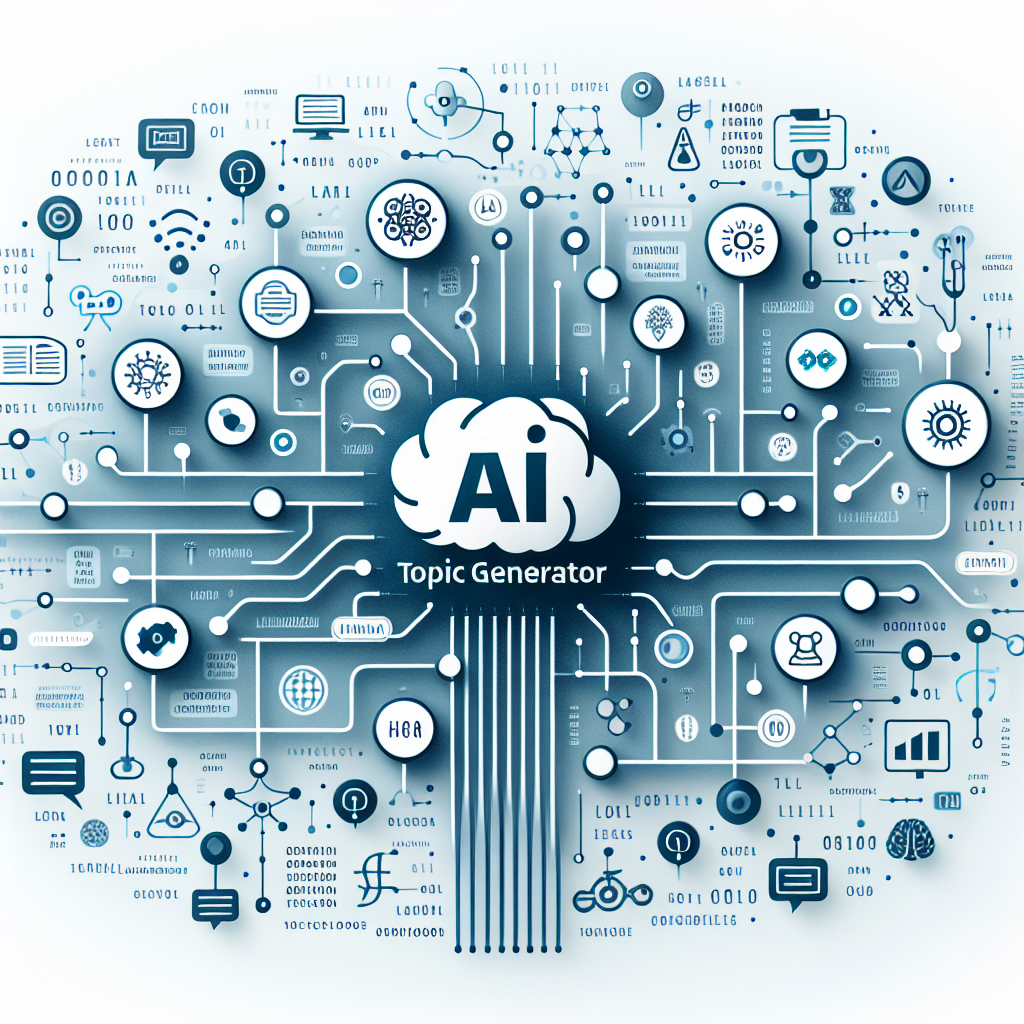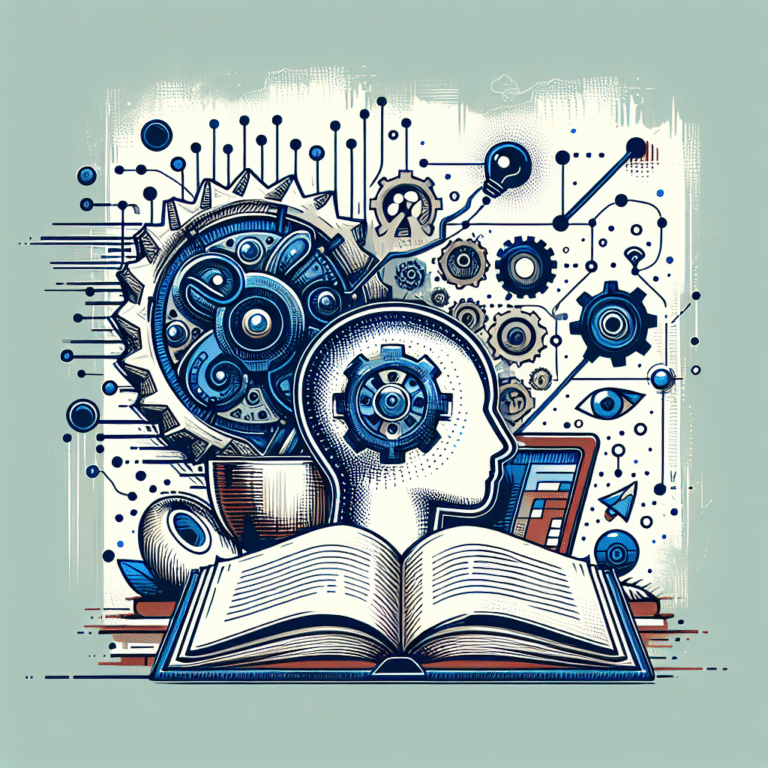AI Topic Generator: A Comprehensive Guide to Content Creation
Artificial intelligence has revolutionized numerous industries and aspects of our lives, and content creation is no exception. The AI topic generator is a cutting-edge tool that leverages machine learning algorithms to suggest relevant and engaging topics for writers, bloggers, and content marketers. This innovative technology has made it easier for individuals to come up with fresh ideas, increase productivity, and streamline their content creation process. With the AI topic generator, users can enter a keyword or phrase and receive a list of potential topics, along with relevant information such as search volume, competition, and suggested content length. This data enables writers to make informed decisions about the topics they choose to pursue, ensuring that their content resonates with their target audience and stands out in a crowded online landscape.
Introduction to AI Topic Generators

The AI topic generator is a type of natural language processing (NLP) tool that uses complex algorithms to analyze large datasets and identify patterns, relationships, and trends. By processing vast amounts of information, these tools can generate a wide range of topics, from general ideas to specific, niche subjects. The AI topic generator can be used in various contexts, including blogging, social media marketing, content marketing, and even academic research. One of the key benefits of using an AI topic generator is that it saves time and effort, allowing writers to focus on creating high-quality content rather than spending hours brainstorming ideas. Additionally, these tools can help reduce writer’s block, increase productivity, and improve overall content quality.
How AI topic Generators Work
AI topic generators use a combination of machine learning algorithms and natural language processing techniques to generate topics. The process typically involves the following steps: data collection, data analysis, pattern recognition, and topic generation. During the data collection phase, the AI tool gathers a vast amount of information from various sources, including online databases, articles, and social media platforms. The data analysis phase involves processing and analyzing the collected data to identify patterns, relationships, and trends. The pattern recognition phase uses machine learning algorithms to recognize patterns and relationships in the data, which are then used to generate topics. Finally, the topic generation phase involves using the recognized patterns and relationships to suggest relevant and engaging topics.
Machine Learning Algorithms Used in AI Topic Generators

AI topic generators use various machine learning algorithms, including supervised learning, unsupervised learning, and reinforcement learning. Supervised learning involves training the AI model on labeled data, where the model learns to recognize patterns and relationships between the input data and the corresponding output. Unsupervised learning involves training the AI model on unlabeled data, where the model learns to identify patterns and relationships in the data without any prior knowledge. Reinforcement learning involves training the AI model through trial and error, where the model learns to make decisions based on rewards or penalties.
Benefits of Using AI topic Generators
The benefits of using AI topic generators are numerous and significant. One of the primary advantages is that these tools can help writers overcome writer’s block, which is a common problem that can hinder productivity and creativity. AI topic generators can also help writers come up with fresh and unique ideas, which can be challenging, especially when working on a tight deadline. Additionally, these tools can help writers save time and effort, allowing them to focus on creating high-quality content rather than spending hours brainstorming ideas. Furthermore, AI topic generators can help writers identify gaps in the market, allowing them to create content that fills a specific need or addresses a particular topic.
Real-World Applications of AI topic Generators

AI topic generators have numerous real-world applications, including content marketing, social media marketing, blogging, and academic research. In content marketing, AI topic generators can help marketers come up with relevant and engaging topics that resonate with their target audience. In social media marketing, these tools can help marketers create content that is optimized for specific social media platforms, such as Facebook, Twitter, or Instagram. In blogging, AI topic generators can help bloggers come up with fresh and unique ideas, allowing them to create high-quality content that stands out in a crowded online landscape. In academic research, AI topic generators can help researchers identify gaps in the literature, allowing them to create research papers that fill a specific need or address a particular topic.
Step-by-Step Guide to Using AI Topic Generators
Using an AI topic generator is a straightforward process that involves the following steps: selecting a keyword or phrase, entering the keyword or phrase into the AI tool, analyzing the suggested topics, selecting a topic, and creating content. The first step involves selecting a keyword or phrase that is relevant to the content you want to create. The second step involves entering the keyword or phrase into the AI tool, which will generate a list of potential topics. The third step involves analyzing the suggested topics, taking into account factors such as search volume, competition, and suggested content length. The fourth step involves selecting a topic that resonates with your target audience and stands out in a crowded online landscape. Finally, the fifth step involves creating high-quality content that is optimized for your selected topic.
Best Practices for Using AI Topic Generators
There are several best practices to keep in mind when using AI topic generators. One of the primary best practices is to use high-quality keywords or phrases that are relevant to the content you want to create. Another best practice is to analyze the suggested topics carefully, taking into account factors such as search volume, competition, and suggested content length. Additionally, it is essential to select a topic that resonates with your target audience and stands out in a crowded online landscape. Furthermore, it is crucial to create high-quality content that is optimized for your selected topic, using techniques such as keyword optimization, meta descriptions, and header tags.
Conclusion and Future Directions
In conclusion, AI topic generators are powerful tools that can help writers, bloggers, and content marketers come up with fresh and unique ideas, increase productivity, and streamline their content creation process. These tools use machine learning algorithms and natural language processing techniques to generate topics, and they have numerous real-world applications, including content marketing, social media marketing, blogging, and academic research. As the field of artificial intelligence continues to evolve, we can expect to see significant advancements in AI topic generators, including improved accuracy, increased efficiency, and enhanced functionality. Furthermore, the integration of AI topic generators with other AI tools, such as content generation and optimization tools, will likely become more prevalent, allowing writers and marketers to create high-quality content that resonates with their target audience and stands out in a crowded online landscape.




